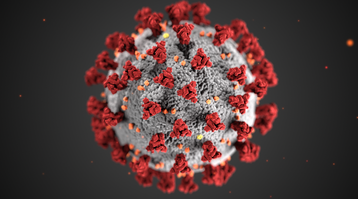The EU has funded a new viral research group Exscalate4CoV (E4C) as part of a tender to gather research on combatting the Covid-19.
The Italian public-private consortium is participating in the project to tackle the coronavirus. To date, almost 100 entities have joined the project. The task aims to identify the molecules that are effective against coronavirus and develop new tools against future pandemics within 18 months.
E4C joined the mission back in February, but received its funding of €3m ($3.3m) in March. Following the publication of a €10m ($11m) tender in January, the European Commission was later joined by European Horizon 2020 project which invested a further €37.5m ($41m).
Hopeful horizons
Mariya Gabriel, Commissioner for Innovation, Research, Culture, Education, and Youth, said: “The emergency funding from Horizon 2020 enables researchers to work immediately to tackle the outbreak of the coronavirus on several fronts. Seeing the research community getting into action so rapidly gives us new hope that we will soon be one step closer to our goal of stopping the spread of the virus.”
Members of the pharmaceutical industry are also expected to bring the total investment of the project up to €90m ($100m).
Building models
E4C's job will now be to virtually simulate covid-19 and build an accurate 3D model that scientists can use to mimic how the pathogen’s proteins interact with specific drugs. The system also has access to an entire "chemical library" of around 500 billion molecules, and the platform is capable of processing three million molecules per second.
"The consortium aims to identify the safest and most promising drugs for the immediate treatment of the already infected population, followed by the identification of molecules capable of inhibiting the pathogenesis of the coronavirus to counter future contagions,” E4C said in a statement. The supercomputer will also be able to model future mutations of the virus.
Once suitable molecules have been found to work, the news will be sent to pharmaceutical companies, in the project, to create vaccines.
E4C consists of entities like the Polytechnic of Milan, the Cineca Interuniversity Consortium, the University of Milan, Federico II University of Naples, University of Cagliari, National Institute of Nuclear Physics, the National Institute for Infectious Diseases Lazzaro Spallanzani, and Chelonia Applied Science. In the past, the consortium has worked under different names, such as the Antarex project which researched the Zika virus.
Cineca’s 10 petaflops Marconi supercomputer has been the workhorse for E4C for years. In the future, however, the group hope to use the upcoming Leonardo supercomputer in Italy, currently expected to be capable of more than 200 petaflops when it goes live later this year.
The US Department of Energy is also using its 200 petaflops Summit supercomputer to work on coronavirus treatments.




